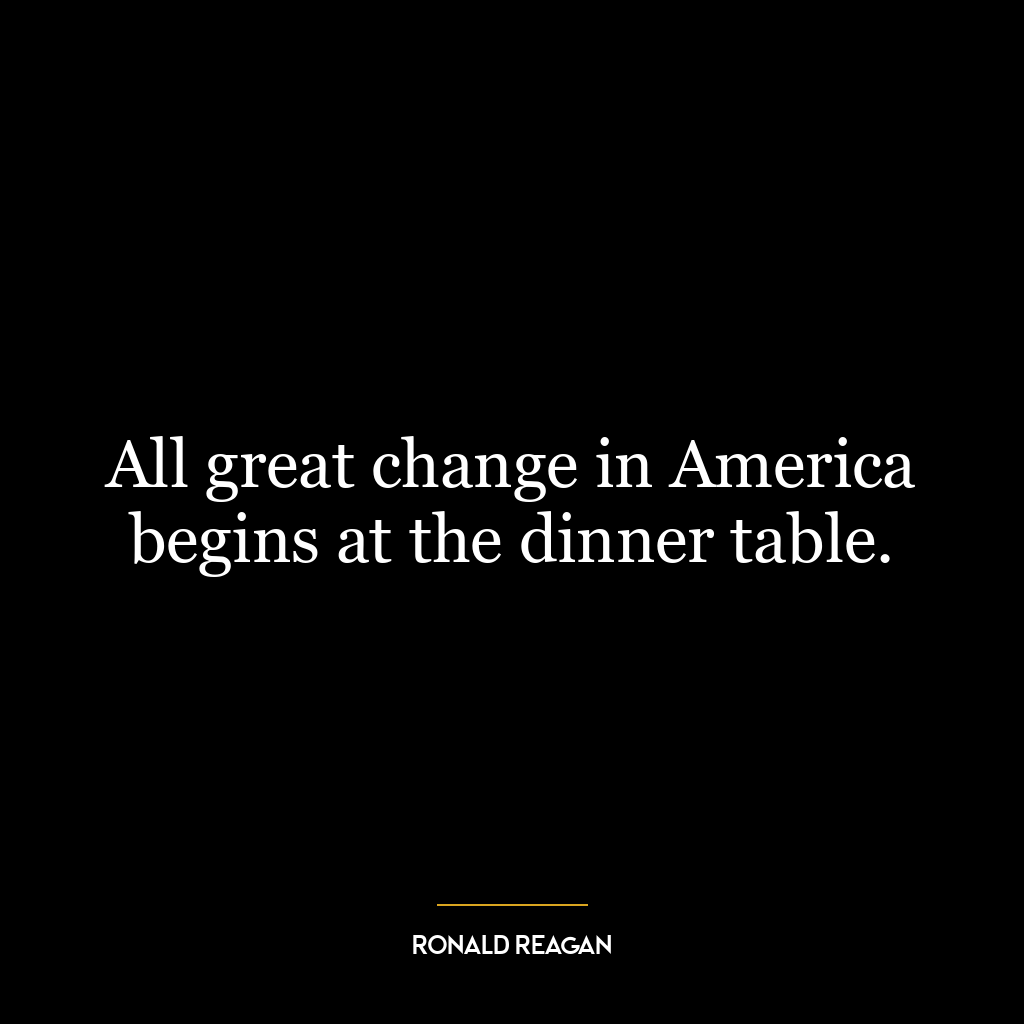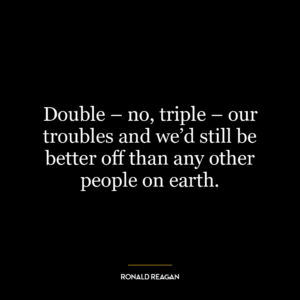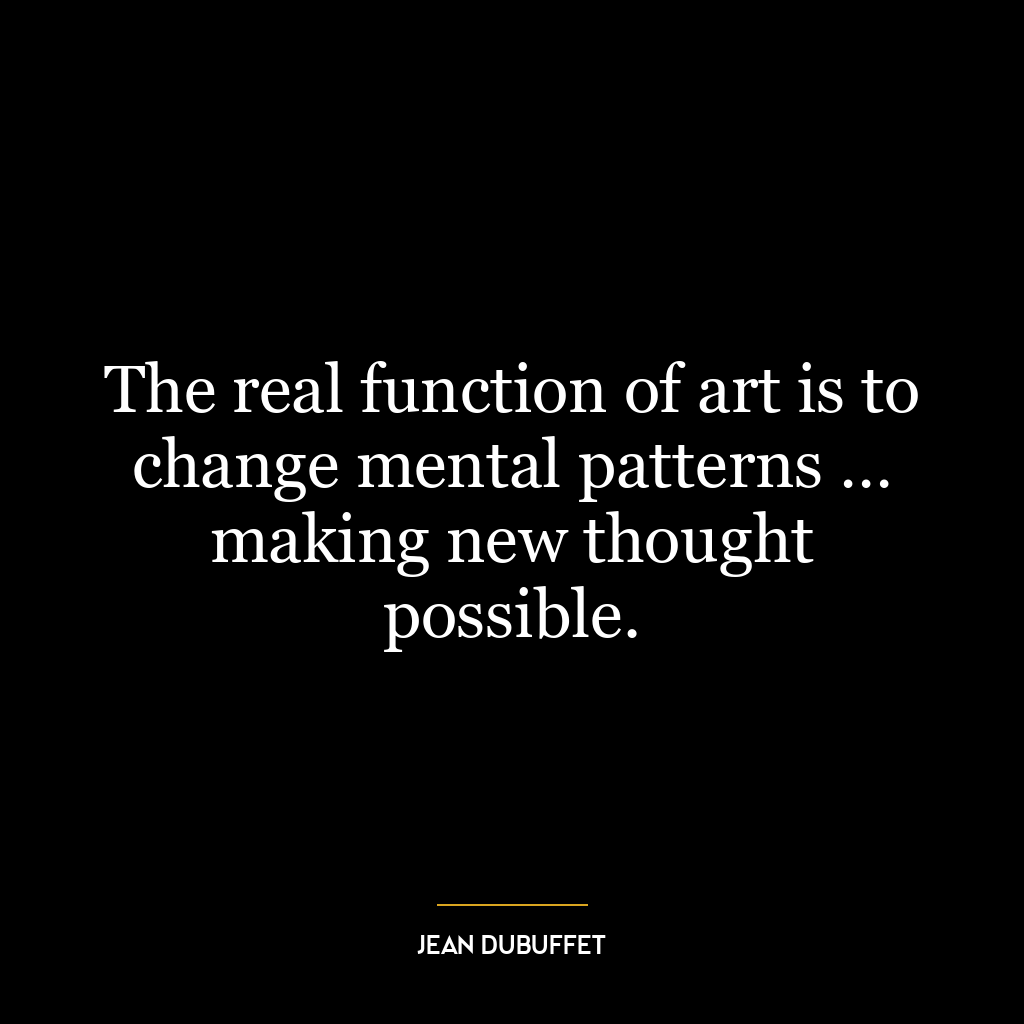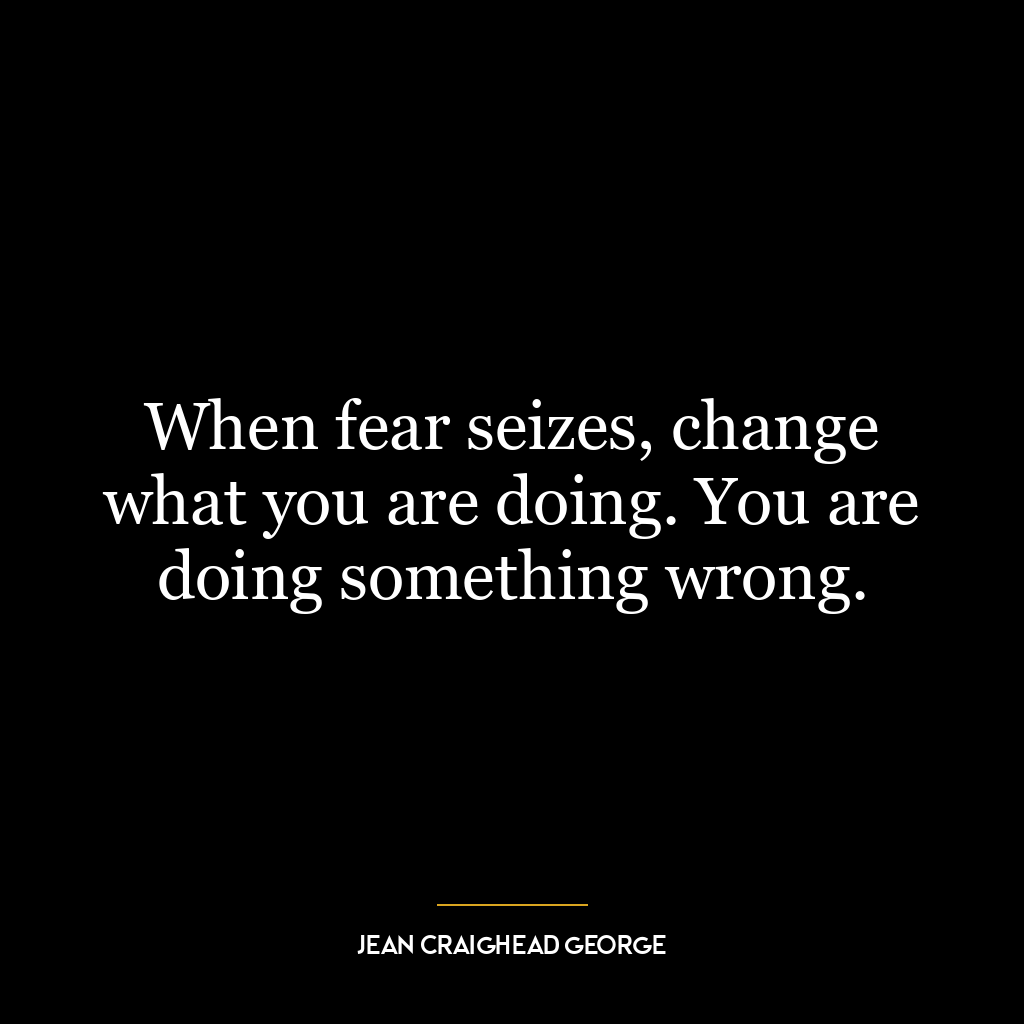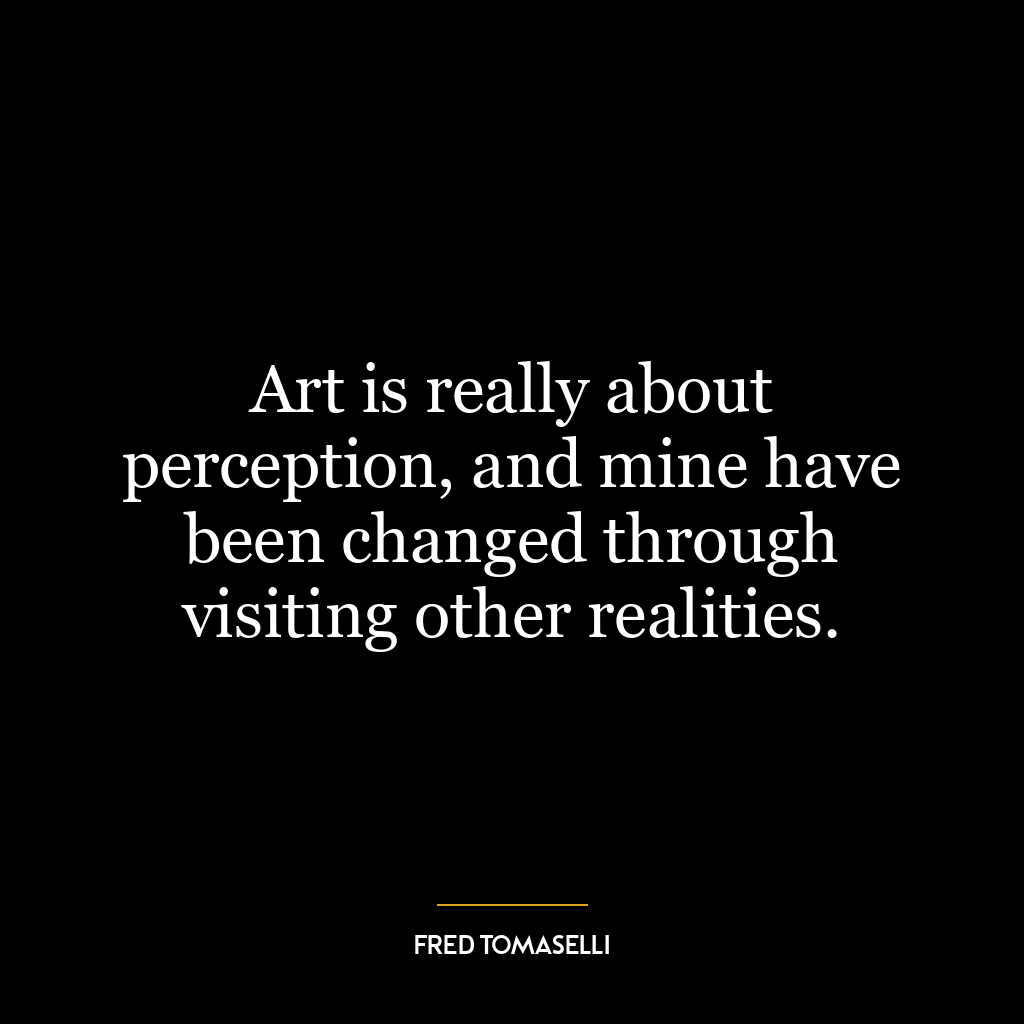This quote implies that the most profound and lasting changes in society start from small, intimate settings such as family dinners. The dinner table is a symbol for home and family, where values, beliefs, and ideas are first formed and exchanged. It’s a place where children learn from their parents, where news and ideas are discussed and where the foundations of an individual’s perspective on life are laid.
In essence, the quote suggests that impactful societal change is not instigated by governments or institutions, but by individuals and families in their daily conversations and interactions. It’s a bottom-up approach, where change is cultivated in the smallest units of society – the family – and then ripples outward to affect the larger community, the state, and eventually the nation.
Applying this idea to today’s world, it could mean that the conversations we have at home, especially those with younger generations, can shape the future of our society. Discussing topics like climate change, equality, or even political issues at the dinner table can influence the perspectives and actions of family members. These conversations can inspire actions that lead to change, whether it’s as simple as recycling more or as complex as advocating for policy changes.
In terms of personal development, it emphasizes the power of small, consistent changes. Just as societal change begins with small conversations, personal growth begins with small steps. The habits we form, the books we read, the ideas we engage with – these all shape us over time. It’s a reminder that every action, no matter how small, can contribute to substantial transformation over time.

